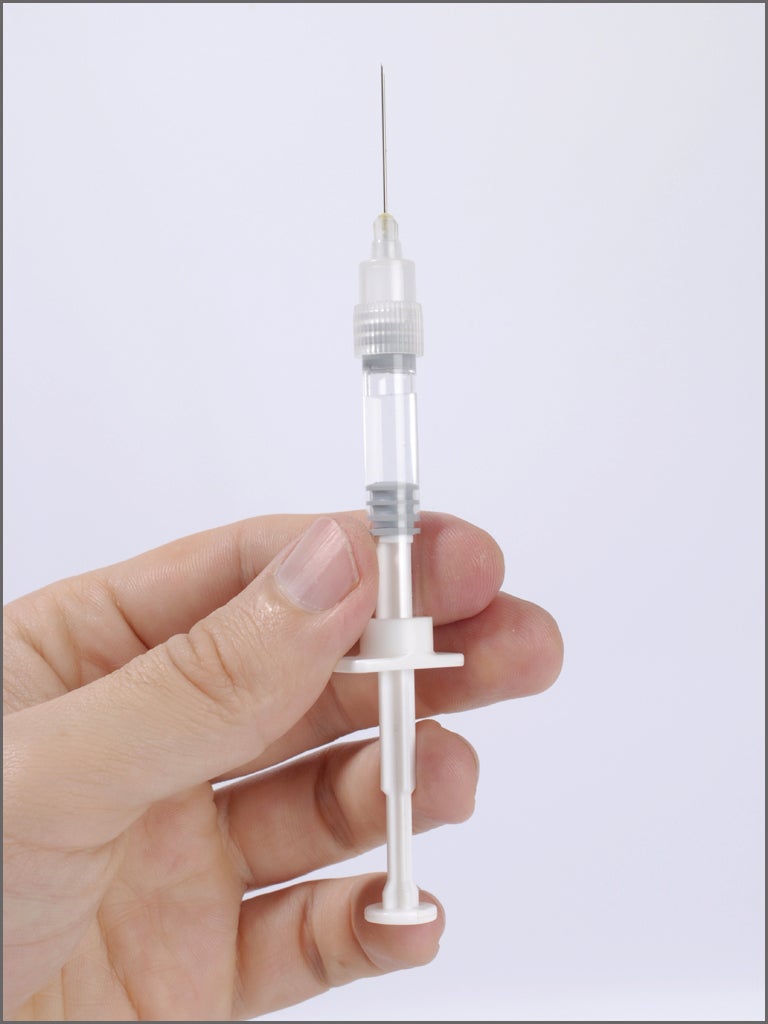13,000 patients may have been exposed to fungus

Your support helps us to tell the story
From reproductive rights to climate change to Big Tech, The Independent is on the ground when the story is developing. Whether it's investigating the financials of Elon Musk's pro-Trump PAC or producing our latest documentary, 'The A Word', which shines a light on the American women fighting for reproductive rights, we know how important it is to parse out the facts from the messaging.
At such a critical moment in US history, we need reporters on the ground. Your donation allows us to keep sending journalists to speak to both sides of the story.
The Independent is trusted by Americans across the entire political spectrum. And unlike many other quality news outlets, we choose not to lock Americans out of our reporting and analysis with paywalls. We believe quality journalism should be available to everyone, paid for by those who can afford it.
Your support makes all the difference.As many as 13,000 patients across the US had steroid injections that may have been contaminated by a fungus linked to a rare form of meningitis that has killed eight people, federal officials said yesterday.
The officials don't know how many of the injections were tainted. But they do know that 13,000 patients received the injection from the compounding pharmacy at the center of the outbreak, according to officials.
Federal and state health officials are scrambling to contact patients who might be affected by the widening outbreak, which involves a medicine commonly used to treat lower back pain, methylprednisolone acetate.
A total of 105 cases of meningitis linked to the injections have been reported in 23 states, according to updated figures provided Monday by the federal Centers for Disease Control and Prevention (CDC).
Across the country, state and local health department officials have been trying to contact patients who may have been given the tainted injections, in some cases making home visits.
"They're just trying to reach everyone, especially since the early symptoms might be considered just a plain old headache or flu," said Beth Bickford, executive director of the Association of Ohio Health Commissioners. She said early treatment is key.
More than 17,000 vials of the injectable steroid were shipped from a compounding pharmacy, New England Compounding Center (NECC) in Framingham, Mass., to 75 facilities over the summer. The injections were given from late May through late September.
Fungus in some of the vials appears to cause a rare brain infection that requires months of intravenous antibiotics to cure. Unlike other types of meningitis, symptoms might appear gradually, said CDC spokesman Curtis Allen. They include sensitivity to light, stiff neck, weakness or numbness and slurred speech.
The outbreak has focused attention on the regulation of pharmaceutical compounding companies. The Massachusetts company has voluntarily recalled all its products, suspended operations and said it is working with regulators to identify the source of the infection.
Massachusetts health officials, in a statement issued Monday, said that compounding pharmacies are only allowed to prepare and dispense medications for individual patients and that manufacturing products without prescriptions is a violation of a company's license with the board of pharmacy.
Traditional compounding pharmacies typically custom-make medicines for individual patients. In the past two years, hospitals and other health-care providers have been relying increasingly on these pharmacies because of continuing drug shortages, particularly of generics, industry executives said.
Of the country's 56,000 community pharmacies, about 7,500 are considered compounding pharmacies, industry executives said.
But the large volumes produced by NECC and its extensive multi-state shipments make it more like a manufacturer and less like a pharmacy, industry executives said.
"It's an outlier if this is the kind of volume and distribution they were doing," said David Miller, head of the International Academy of Compounding Pharmacists near Houston.
"At what point do you draw the line between a pharmacy and a manufacturer? It is something from a regulatory perspective that needs to be looked at," said Joe Cabaleiro, executive director of the Pharmacy Compounding Accreditation Board, a voluntary accreditation organization. The Massachusetts company was not among the 162 accredited pharmacies, he said.
The day-to-day operations of compounding pharmacies are regulated by state boards. Although the U.S. Food and Drug Administration has generally claimed oversight of drug-compounding activities, the agency has relied on states to regulate them, according to a 2003 report by the Government Accountability Office. Several lawsuits have muddied the issues of regulatory oversight.
John Eklund, owner of Preston's Care Pharmacy, a boutique pharmacy in Arlington, Va., worries that the meningitis outbreak threatens the profession and could prompt new regulations. He typically produces single batches of custom-mixed drugs for individual patients who have prescriptions from a doctor.
For example, he can mix up an acid reflux drug into a liquid dose that is flavored and scaled down for an infant. Eklund said he does not make the kind of steroid injection implicated in the meningitis outbreak because it is risky and requires testing by an outside lab.
He said he was stunned by the size of the order shipped from NECC. "It's my opinion that when you're doing that level of compounding, you're into manufacturing," he said.
Join our commenting forum
Join thought-provoking conversations, follow other Independent readers and see their replies
Comments